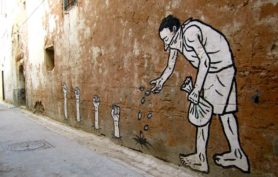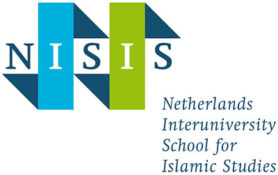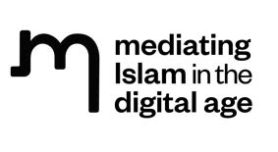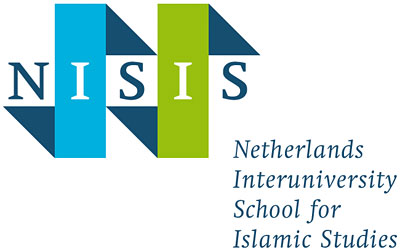Events
ENIS Spring School 2020 ‘Contesting Authority: Knowledge, Power and Expressions of Selfhood’
Registration for the Spring School is now closed. For more information about the Spring School, please read the call for applications and the course description.
Due to the virus, the Spring School that was scheduled to take place in Catania, Italy has been cancelled. The Spring School will nevertheless take place online from 22 to 26 June 2020. Please view the full program here.
The ENIS Spring School 2020 addresses two closely interrelated aspects of Islam in the digital age. Firstly, how (past and contemporary) technological revolutions have informed the performance of selfhood (including gender), the modes of engagement with society, and the political consequences of shifting boundaries between public and private spheres. Secondly, it addresses the construction and transformation of religious authority and religious knowledge production, and concomitant questions of legitimacy, power and discipline, under changing circumstances.
Presently there is a mushrooming of YouTube channels presenting testimonials and life accounts, Facebook pages providing space for minority groups (e.g. homosexuals or ex-Muslims) that publicise previous hidden aspects of identity, as well as blogs and homemade videos communicating everyday life events or short clips showing artistic performance in an affordable non-celebrity style sharing them with a wide audience. Quite often they contain an (implicit) political statement about the societies in which the expressions are uttered, not only in the message but also in the mere fact of the utterance.

Tunisia, 2011 ©ZOO Project, Bilal Berreni / Photograph: Elissa Jobson
(Young) people in the Muslim world, like elsewhere, share more and more aspects of self, including more intimate and previously hidden ones, or experiences with ‘illegality’. These new digital forms of self-expression also entail a claim to space for individualised selfhood. Out of sight of different regimes of surveillance, forms of marginality, secret lives and intimate experiences take on a more public form. With that it questions dominant forms of authority, whether parental, communal, religious or political. The Muslim / Arab world is usually characterised as stressing communal or relational forms of identities and putting less emphasis on individualised selfhood in comparison to the West. The Arab Uprisings first seemed to overturn some deeply rooted forms of authority, including with respect to political power, but now long-established authoritarian forms of power with their different nuances appear to be square back. Yet several observers notice a ‘silent revolution’ taking place on an individual level, asserting individual selfhood and rights. Do these new forms of self-narratives and artistic performances offer us insight into the development of new forms of selfhood? What are the most important characteristics and expressive forms of these new forms of selfhood? What are the potential political consequences of new forms of selfunderstanding and expression?
Issues of selfhood and artistic performance are closely linked to questions of legitimacy, power and discipline. Muslims have held varying, sometimes conflicting, views on the extent to which knowledge and authority are exclusive of a single figure, a masculine ‘professional’ group, or distributed in society, how knowledge should be transmitted and controlled, and the literary forms that it should take, and how it should be reproduced. The widely held assumption that in the pre-digital era Islamic reasoning was a collective matter of established scholars and theology-centred argumentation lacks historical pedigree. The individual as a political subject emerged centuries before the dawn of digital technology. This also questions the assumption that religious authority was uncontested, only to be challenged very recently by the same technological innovations. Questioning ‘established’ religious authorities and addressing new audiences is as old as Islam. The invention of paper, the rise of literacy and the emergence of ‘calligraphic states’, and not least the spread of print technology have had profound influence on authority and knowledge production, but also generated new expressions of selfhood. Digitisation has intensified this process in an unprecedented way, resulting in the rise of new intellectuals, the feminisation of contestation, the ‘democratisation’ of knowledge production, the emergence of new audiences and discursive communities, the relocation, subjectivation, and fragmentation of authority, but also in new forms of community building, online and offline. Finally, digitisation also prompted ‘established’ religious authorities to reflect upon these newly arising challenges and how to effectively cope with them.
The organisers of the MIDA/ENIS Spring School 2020 invite researchers to reflect on these issues from the perspective of their own research and present their work. In order to enhance historical comparison and analytical depth, we very explicitly call not only on researchers working on contemporary issues, but also those who deal with Islam in the past.
The keynote lectures will be given by Marjo Buitelaar (University of Groningen),
Suad Joseph (University of California, Davis), Hilary Kalmbach (University of Sussex), Siobhan Lambert (University of Sheffield), Arshad Muradin (Leiden University), Muhammad Qasim Zaman (Princeton University).
Furthermore, there will be a masterclass by Albrecht Fuess (Philipps-Universität Marburg) and Gerard Wiegers (University of Amsterdam): “What is Islam?” Definitions and Interdisciplinary Approaches between the Middle Ages and the Digital Age.
Requirements for applications
PhD candidate students and advanced MA students, whose research focuses on this topic without limitation to Islamic societies or Islam, are invited to apply for participation.
Please note:
- Candidates enrolled at French and Spanish universities are invited to apply at IISMM (send your email to Giulia Galluccio: giulia.galluccio@ehess.fr)
- Candidates enrolled in Italian universities are invited to apply at SeSaMO (send your email to Daniela Melfa: melfa@unict.it)
- Candidates enrolled in Dutch universities are invited to apply at NISIS (via this website)
- Candidates enrolled in German universities are invited to apply at the CNMS (send your email to Maike Neufend: maike.neufend@unimarburg.de)
Candidates enrolled in other universities than the ones mentioned are requested to apply at one of the four institutions only.
It is mandatory to specify in the application: Application Springschool 2020
Successful applicants may receive some funding from the Selection Committee.
Scientific Committee
- Prof. Pascal Buresi (CNRS, EHESS-IISMM)
- Prof. Albrecht Fuess (CNMS/University of Marburg)
- Maike Neufend (CNMS/University of Marburg)
- Dr. Jens Heibach (German Institute of Global and Areas Studies, and Marburg University)
- Prof. Christian Lange (Director NISIS/Utrecht University)
- Dr. Pénélope Larzillière (IRD)
- Prof. Daniela Melfa (SeSaMO president, University of Catania)
- Prof. Karin van Nieuwkerk (Radboud University Nijmegen)
- Prof. Thijl Sunier (Vrije Universiteit Amsterdam)
- Prof. Gerard Wiegers (University of Amsterdam)






